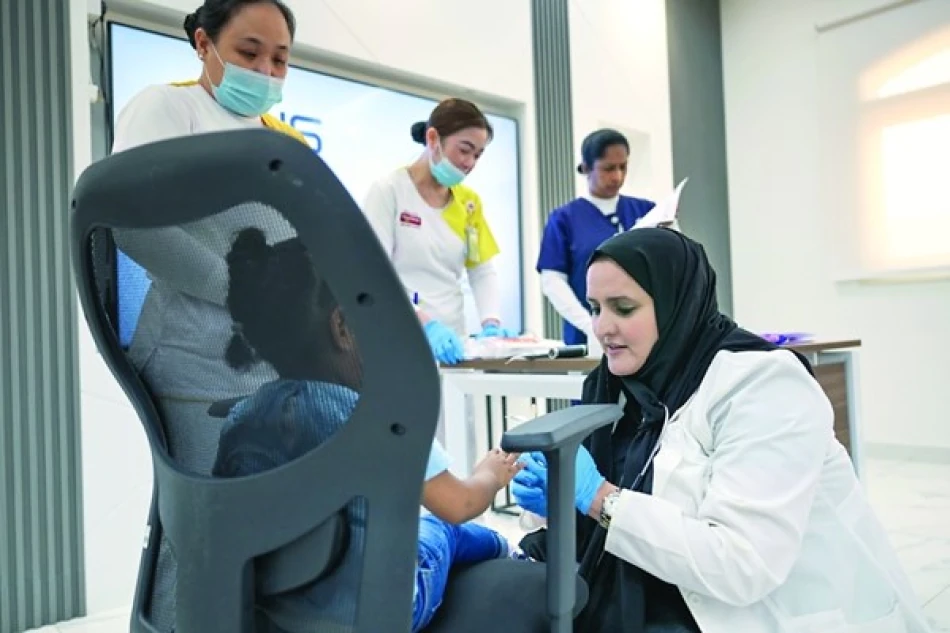
Comprehensive School Health Screening Program Launched to Prioritize Student Wellbeing
UAE Launches Revolutionary School Health Initiative Targeting Mental Wellness and Chronic Disease Prevention
The Emirates Health Services Authority has unveiled an ambitious comprehensive medical screening program for the new academic year, marking a significant shift toward preventive healthcare in education. The initiative covers all students from kindergarten through grade 12 in both public and private schools across multiple emirates, with a groundbreaking focus on mental health screening and early detection of chronic conditions that could impact academic performance.
Digital-First Approach to School Healthcare
The program introduces an innovative digital platform for vaccine distribution in private schools, allowing medical teams to request and receive vaccinations directly through streamlined electronic processes. This technological integration ensures timely vaccine delivery while standardizing procedures across the UAE's diverse educational landscape.
The comprehensive screening includes annual basic examinations such as height, weight, and body mass index (BMI) measurements, vision testing, medical history reviews, and verification of national immunization program compliance. This systematic approach creates a robust health database that will inform healthcare policy for years to come.
Age-Specific Medical Interventions
Critical Screening Milestones
The program strategically targets four key educational stages for comprehensive physical examinations: kindergarten (KG1), first grade, fifth grade, and ninth grade. These intervals align with crucial developmental periods when health issues are most likely to emerge or require intervention.
During these milestone screenings, medical teams assess vital signs including blood pressure and conduct general clinical examinations designed to detect chronic diseases early. The program also includes spinal examinations to identify abnormal curvatures (scoliosis) that commonly develop during growth spurts.
Targeted Health Assessments
Blood testing focuses on first-grade students and ninth-grade females to screen for anemia, one of the most prevalent health issues among adolescents. First-grade students also receive hearing assessments, recognizing the direct correlation between auditory health and learning capacity in classroom environments.
Mental Health Revolution in UAE Schools
Perhaps most significantly, the program mandates depression screening for ninth-grade students using certified medical questionnaires. This represents a paradigmatic shift in how Gulf nations approach mental health in educational settings, moving beyond traditional physical health metrics to embrace holistic wellness.
The inclusion of mental health screening reflects the UAE's recognition that psychological well-being directly impacts academic achievement and long-term societal outcomes. This approach positions the UAE ahead of many developed nations that still struggle to integrate mental health services into school systems.
Strategic Vaccination Schedule
The immunization component follows a carefully calibrated schedule. First-grade students receive vaccines for measles, mumps, rubella, chickenpox, and a combination vaccine for diphtheria, tetanus, whooping cough, and polio.
Eighth-grade students receive the human papillomavirus (HPV) vaccine, administered as two doses for students under 15 and three doses for those 15 and older. Eleventh-grade students receive meningitis vaccines and additional diphtheria, tetanus, and whooping cough immunizations.
Investment in Future Workforce Health
This initiative represents more than routine healthcare—it's a strategic investment in human capital development. By establishing comprehensive health baselines for students and ensuring early intervention for identified issues, the UAE is positioning itself to maintain a healthier, more productive workforce in the coming decades.
The program's emphasis on specialized medical teams comprising trained doctors, nurses, and technicians ensures professional standards while maintaining educational continuity. Students requiring follow-up care are immediately referred to medical specialists, guaranteeing timely intervention when health issues are detected.
As the UAE continues diversifying its economy and investing in knowledge-based industries, this comprehensive approach to student health represents a foundational element in building the human capital necessary for sustained economic growth and innovation leadership in the region.
Most Viewed News

 Layla Al Mansoori
Layla Al Mansoori






